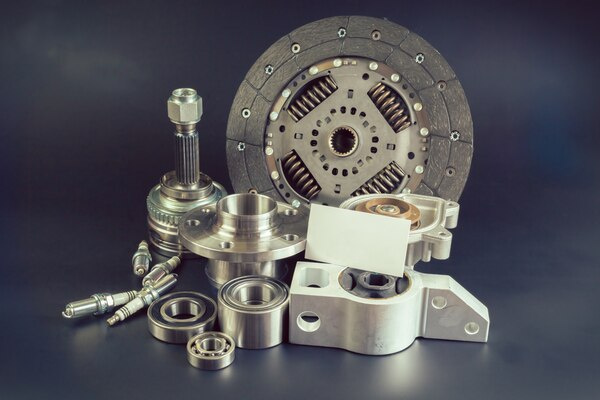Innovative Solutions in the Automotive Industry
The automotive industry is undergoing a transformative period marked by rapid advancements and innovative solutions. These innovations span across various facets of the industry, including design, manufacturing, safety, efficiency, and environmental impact. Here we explore some of the most groundbreaking developments that are shaping the future of transportation.
One of the most significant areas of innovation is in electric vehicles (EVs). Companies like Tesla, Nissan, and now traditional automakers like Ford and General Motors are heavily investing in EV technology. These vehicles have made remarkable strides in terms of range, charging speed, and overall performance. The introduction of solid-state batteries promises to further enhance these aspects, offering superior energy density and faster charging times compared to current lithium-ion batteries.

Autonomous driving technology is another revolutionary development. Companies such as Waymo, Uber, and a host of startups are pioneering self-driving systems that aim to reduce human error, which is a leading cause of traffic accidents. Advanced driver-assistance systems (ADAS) have already become commonplace, featuring functionalities such as adaptive cruise control, lane-keeping assistance, and automatic emergency braking. As these technologies evolve, fully autonomous vehicles could become a reality, drastically altering the landscape of personal and commercial transportation.
Connected car technology is enhancing the driving experience by integrating vehicles with the internet and each other. This capability enables real-time traffic monitoring, over-the-air updates, and enhanced navigation services. Moreover, car-to-car (C2C) and car-to-infrastructure (C2I) communication can lead to more synchronized and safer driving experiences by allowing cars to “talk” to each other and to traffic signals.
Sustainability is at the forefront of modern automotive innovation. Beyond the rise of EVs, efforts are being made to produce cars using environmentally friendly materials and methods. Many automakers are adopting circular economy principles, ensuring that materials are recycled and reused at the end of a vehicle’s life cycle. Additionally, renewable energy sources are increasingly being utilized in the manufacturing process, further reducing the environmental footprint of automobile production.
Advances in lightweight materials, such as high-strength steel, aluminum, and carbon fiber composites, are also making vehicles more efficient. Lighter cars require less energy to move, which translates to improved fuel efficiency for internal combustion engine (ICE) vehicles and an extended range for EVs. This innovation is crucial as it addresses both performance and environmental concerns.
In the realm of manufacturing, Industry 4.0 technologies such as additive manufacturing (3D printing), artificial intelligence, and advanced robotics are revolutionizing production lines. These technologies enhance precision, reduce waste, and enable more customizable manufacturing processes. Factories are becoming smarter and more flexible, capable of quickly adapting to changes in consumer demand or new model introductions.
Last but not least, the integration of alternative fuels, such as hydrogen and biofuels, offers diverse pathways to reducing carbon emissions. Hydrogen fuel cell vehicles (FCVs) like the Toyota Mirai are becoming more viable as the technology matures and refueling infrastructure expands. Biofuels, derived from organic materials, present another promising solution for making traditional ICEs more environmentally friendly.
In conclusion, the automotive industry is at a pivotal moment, driven by an array of innovative solutions designed to meet the evolving demands of efficiency, safety, sustainability, and connectivity. As technology continues to advance, the vehicles of the future will likely be unrecognizable from those of today, providing a glimpse into a smarter, greener, and more autonomous world of transportation.